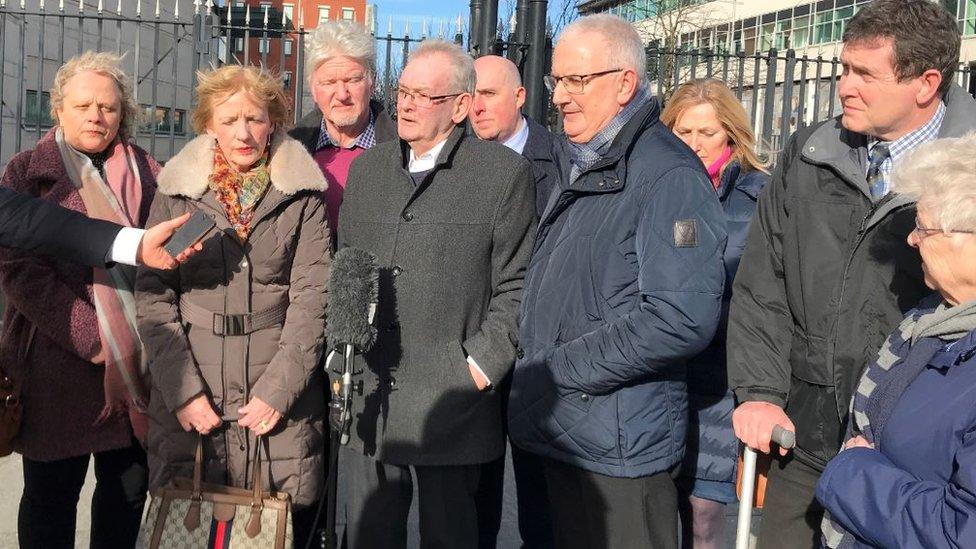Kingsmills survivor Alan Black feels 'duty to seek truth'
- Published
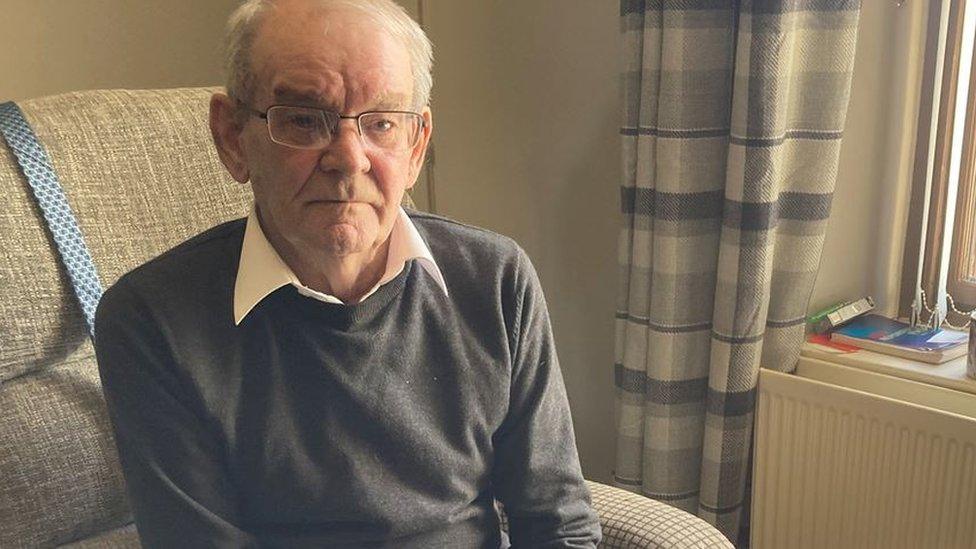
Alan Black was 32 at the time of the attack and says he is haunted by the memory
The only survivor of the Kingsmills massacre in County Armagh says he has a duty to his murdered friends to continue to seek justice.
Alan Black was speaking a day after an inquest found that the 1976 attack was an overtly sectarian IRA operation.
Mr Black, who was 32 at the time, said he is still haunted by the attack in which 10 Protestant workmen were shot dead after a minibus ambush.
He was shot 18 times. No-one has ever been held to account for the murders.
Mr Black, now 80, has a photo of himself at the scene of the killings which sits on his mantlepiece.
He says it is the "first thing" he sees every morning and feels a "duty" to his murdered workmates to continue his campaign for justice.
"I'm going to do everything I possibly can to get the truth for them," he told BBC News NI.
"They're crying out for the truth.
"I'm the only one who can tell it and I have to tell it. I'm 80 years old now, I'm not in good health but as long as I can I will keep taking it forward".
The families of the Kingsmills victims have called for a public inquiry into the killings.
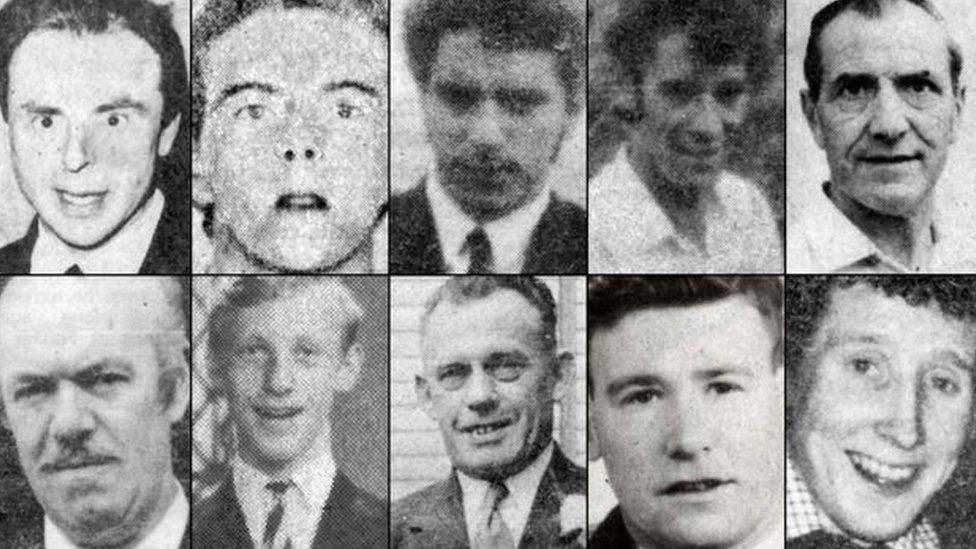
Ten workmen, aged from 19 to 58, were murdered by the IRA at Kingsmills in 1976
On Friday, a coroner said the attack was carried out by a unit consisting of at least 12 members of the IRA, pretending to be an army patrol.
The so-called South Armagh Republican Action Force claimed responsibility for it.
But the coroner said that was a lie.
"The attack was carried out by the IRA operating under the authority of the Army Council which had, in April 1975, given wide authorisation to IRA units," he said.
"Kingsmill was an overtly sectarian attack by the IRA. It was mounted because the deceased men were Protestants and for no other reason," he said.
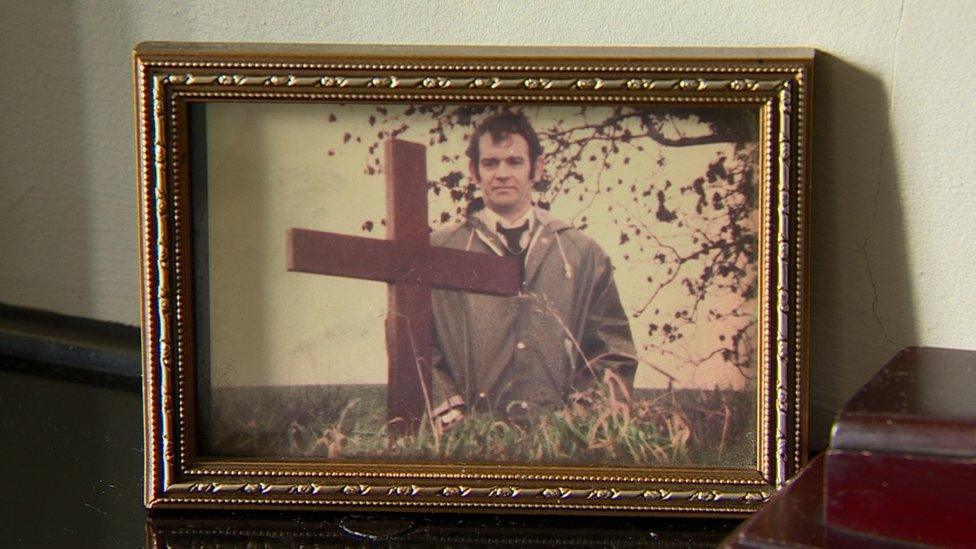
A photo of Alan Black at the site of the massacre in 1976 sits in his home
The IRA has never admitted involvement and was supposed to be on ceasefire at the time.
Judge Sherrard said there was no evidence that informers were protected after the Kingsmills massacre.
In 2011, a report from the Historical Enquiries Team in Northern Ireland said the IRA was responsible for the attack.
It concluded that it had been purely sectarian.
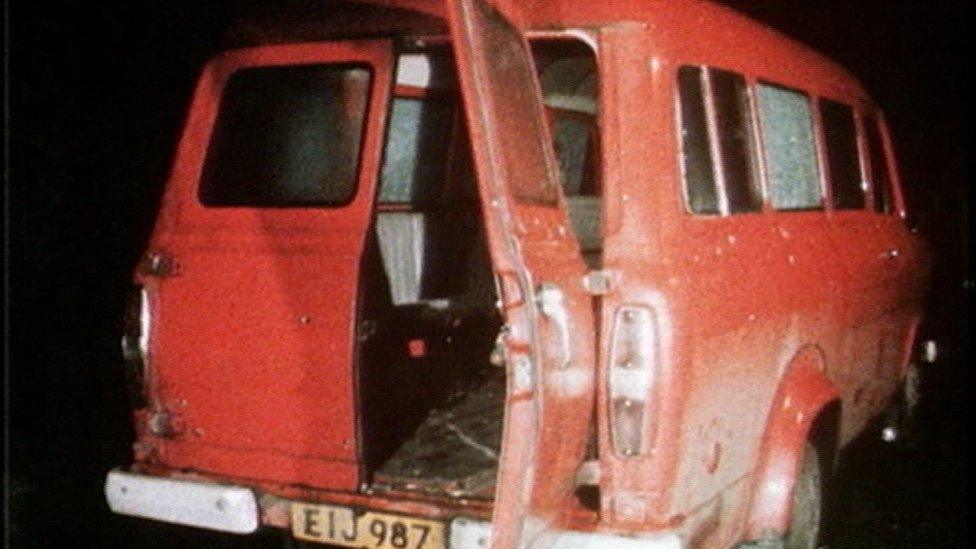
The men were ordered from this van and shot
Outside court on Friday, Alan Black said the findings had "left us all so dissatisfied".
A spokesperson for the Northern Ireland Office said the findings "confirm that this was a horrific terrorist atrocity, committed by the IRA, which had absolutely no justification".
"We hope the findings delivered today give some comfort to the families affected."

What happened at Kingsmills?
On 5 January 1976, a mini-bus carrying textile factory workers was ambushed by an IRA gang near the County Armagh village of Kingsmills.
The men were travelling home when their bus was stopped by a man standing in the road flashing a torch.
As the bus came to a halt, 11 other men, all masked and armed, emerged from hedges around the road.
The IRA men ordered the passengers out of the bus demanding to know the religion of each of the men.
One of the workers, who identified himself as a Catholic, was told to leave.
The gang then opened fire on the remaining passengers, killing 10 Protestant workmen and seriously wounding another, Alan Black.
Related topics
- Published12 April 2024

- Published12 April 2024
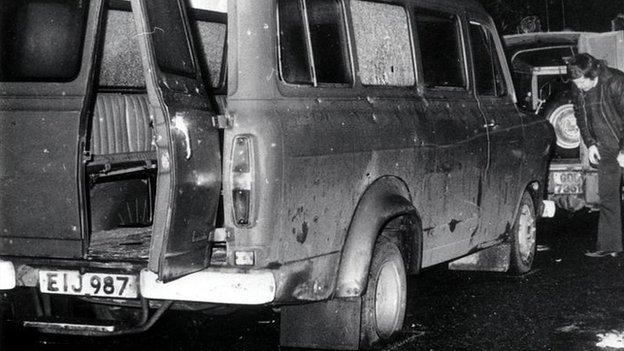
- Published12 April 2024

- Published26 February 2020
